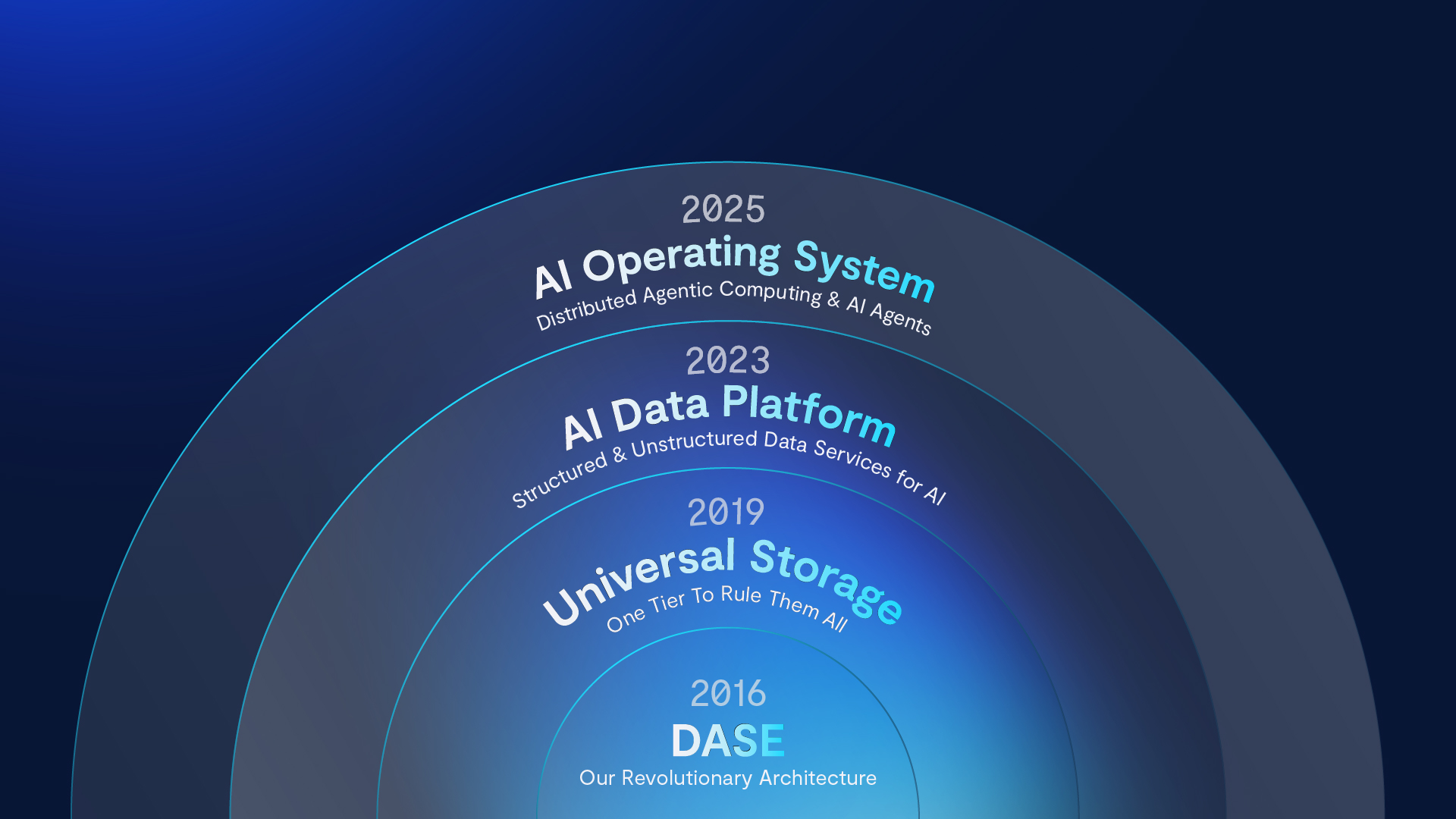 AI
AI
 AI
AI
 AI
AI
Consolidating a series of recent enhancements around a single theme, Vast Data Inc. today launched what it calls an AI Operating System intended to support the coming age of “agentic computing,” where trillions of artificial intelligence-equipped agents operate across a global network.
The launch caps nearly a decade of engineering, starting with Vast’s Disaggregated and Shared-Everything architecture, which separates the storage media from the processors that manage it. That enables the platform to store nearly unlimited amount of data that can be accessed independently of the customers computing resources. Vast Data said its platform is now capable of federating massive AI clusters for real-time data analytics and agentic workflows operating at unprecedented scale.
“We’re now at a point where we’re seeing a real push toward building agentic businesses,” said Vast Data co-founder Jeff Denworth, “We work with some of the world’s largest investment banks and they’re looking to get a 4x employee efficiency boost by using agents to augment their employees.”
Denworth noted that historically, each major platform shift — from PCs to mobile to cloud — has been marked by the rise of a new operating system. He said AI demands a similar reinvention. The Vast AI OS combines core distributed computing services — compute, storage, messaging and reasoning into a unified layer that spans cloud, edge and data center environments.
It includes a kernel for managing services, a runtime for deploying agents, real-time messaging and event-handling infrastructure and a distributed file and database system that handles structured and unstructured data. The system is designed to enable the massive scale demanded by AI with Vast supporting more than 1 million graphic processing units globally.
Vast Data has been building its operating system incrementally. The original DASE architecture has evolved to include analytics and database services. Since the beginning of this year, the company has added block storage and event streaming, vector search and serverless functions and merged file, object, block, table and streaming data into a single software stack. Denworth said it now has a “full application stack” capable of powering entire agentic workflows.
Central to the effort is AgentEngine, a runtime and development environment where AI agents can be deployed, monitored and scaled. It features native support for Python with a low-code development option and a system for chaining together reasoning models, data tools and observability pipelines.
Pre-built, open-source agents will ship monthly, starting with general-purpose assistants like a reasoning chatbot, data engineering helpers and compliance bots, as well as domain-specific tools such as bioinformatics researchers or media editors.
Denworth likened the prebuilt tools to the “Minesweeper” game on early versions of Windows that was meant to introduce users to a graphical user interface. “Think of them as first-party agents that help companies bootstrap their AI efforts,” he said.
Vast said it’s committed to open standards, so a cornerstone of the platform is support for the Model Context Protocol, the interoperability standard recently introduced by Anthropic PBC that enables agents and tools to interact with each other. The company also plans to support the Agent2Agent protocol designed by Google LLC and released to open source.
Vast said it won’t compete in the model space. “We’re not training our own models,” Denworth said. “There’s so much out there that we probably can’t contribute too much in adding more intelligence. We can make it a lot easier for this stuff to be deployed and self-managing.”
Founded in 2016, Vast recently surpassed $2 billion in total software sales and has seen growth accelerate over the past two years, Denworth said. The company was valued at more than $9 billion after a late 2023 funding round of $118 million – money its founders said it didn’t need because it was already cash flow-positive.
To jumpstart adoption, Vast will be rolling out training workshops around the world, both in-person and virtually.
Support our mission to keep content open and free by engaging with theCUBE community. Join theCUBE’s Alumni Trust Network, where technology leaders connect, share intelligence and create opportunities.
Founded by tech visionaries John Furrier and Dave Vellante, SiliconANGLE Media has built a dynamic ecosystem of industry-leading digital media brands that reach 15+ million elite tech professionals. Our new proprietary theCUBE AI Video Cloud is breaking ground in audience interaction, leveraging theCUBEai.com neural network to help technology companies make data-driven decisions and stay at the forefront of industry conversations.